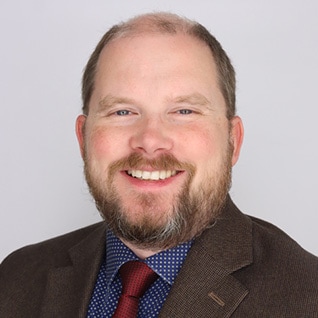Department and Faculty
Radiologists and staff in the Department of Radiology at Mayo Clinic's campus in Rochester, Minnesota, provide the highest quality diagnostic and interventional imaging services in a caring and efficient manner, while sustaining outstanding programs in research and education.
The 115-year-old department — one of the first of its kind — is fully integrated with all the medical services available throughout Mayo Clinic. More than 180 radiologists and physicists cooperate with 1,100 support staff to provide diagnostic and therapeutic radiology services to patients.
Facilities
Experts in all areas of radiology consult with specialists in other departments to provide the best care to every patient every day. Radiologists work with state-of-the-art equipment, assisted by skilled technologists and nurses, to perform and interpret more than 1 million examinations yearly. This large number of cases, integrated with ongoing research and education, results in wide-ranging expertise in the imaging and treatment of diseases affecting patients of all ages.
The department's equipment includes:
- Thirty clinical magnetic resonance imaging (MRI) scanners, including sixteen 3-tesla magnets and an additional three full-time dedicated research magnets
- Nineteen clinical computerized tomography (CT) scanners, including nine dual-source scanners, plus two additional CT scanners dedicated to research
- Forty-five ultrasound machines
- Seven interventional suites
The nuclear radiology practice includes:
- Twenty nuclear medicine cameras
- Five positron emission tomography/computerized tomography (PET/CT) scanners
- Two cardiac PET scanners
- One PET/MRI scanner
- Two cyclotrons
Faculty
In addition to caring for patients in clinical practice, Mayo Clinic's faculty is committed to teaching and facilitating the growth of medical knowledge. Many of our faculty members have published and lectured extensively and are highly regarded in their fields. You work closely with these individuals throughout your training in the Nuclear Radiology Fellowship.
Advisers and mentors
Faculty advisers are available to provide comprehensive educational advice and personal support. You meet with your adviser periodically throughout the program to review your progress and career goals, and ensure that your educational needs are being met. Your adviser may serve as a contact point for introducing you and your family to Rochester, Minnesota, and the Mayo Clinic system.
Visiting professors
Many prominent professors visit Mayo Clinic each year. They present their work during lectures, participate in hospital rounds and have informal discussions with trainees. You are encouraged to take full advantage of these educational opportunities.
From the program director
 Thank you for your interest in Mayo Clinic's Nuclear Radiology Fellowship. We are not shy about bragging about our facilities, curriculum, faculty, and the success of our past and current fellows.
Thank you for your interest in Mayo Clinic's Nuclear Radiology Fellowship. We are not shy about bragging about our facilities, curriculum, faculty, and the success of our past and current fellows.
Our first and highest priority is training clinically outstanding nuclear radiologists, ready to handle the volume and complexity of any practice destination. We have alumni across the country in private and academic, rural, and urban practices. As a primary referral center for the northern U.S. and upper Midwest, we are often first to diagnose medical conditions along the gamut of common to rare. As a destination cancer center, we see exceptionally high oncologic imaging volumes and regularly help patients referred for extremely rare pathology. At Mayo, you will become comfortable managing both the horses and the zebras.
Mayo places a high premium on treating the patient, and not only reading the scan — our shifts are structured to give you exposure to robust volumes, but enough time for thoughtful chart review for each patient. We also keep a high proportion of dual-specialty radiologists, meaning you will be reading V/Q scans with attendings trained in both nuclear and chest radiology, and dementia imaging using the latest tracers with attendings trained in both nuclear and neuroradiology. Additional nuclear radiology faculty subspecializations include oncologic imaging, mammography and women's imaging, hospital and emergency radiology, cardiac imaging, musculoskeletal imaging, thyroid imaging and therapy, prostate imaging and theranostics, neuroendocrine tumor imaging, and theranostics, GI and GU radiology including MRI, medical physics, radiopharmacy, and radiation safety. We also have faculty with former clinical careers in hematology and neurology prior to radiology training, and cardiologists participating in your nuclear cardiology training. We commonly share and discuss difficult cases to take advantage of this uniquely high presence of multispecialty expertise — you will receive the benefit of this cross-training as you evaluate your patients.
The diverse faculty expertise and collaboration with oncologists, neurologists, hematologists, cardiologists, and others provide research mentorship in virtually any niche of medicine. We have a robust informatics team to support retrospective research, a radiology-wide program supporting AI projects in medical imaging, and internal radiology grants available to support fellow-initiated prospective work. Our program is involved in multi-center and site-initiated trials of novel PET and therapeutic agents, and our facilities include on-site cyclotron and radiochemistry support for both clinical and research purposes. You will also become familiar with state-of-the-art long-bore PET, PET/MR, and CZT SPECT scanners.
The program prepares graduates to sit for either or both of the ABR CAQ exams in nuclear radiology and ABNM board exam in nuclear medicine.
Do not hesitate to reach out with questions, or to discuss your opportunities here in detail.
Matt Thorpe, M.D., Ph.D.
thorpe.matthew@mayo.edu
Nuclear Radiology Fellowship Program Director
Assistant Professor of Radiology